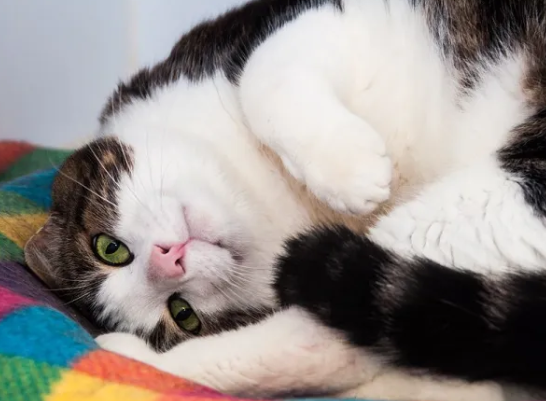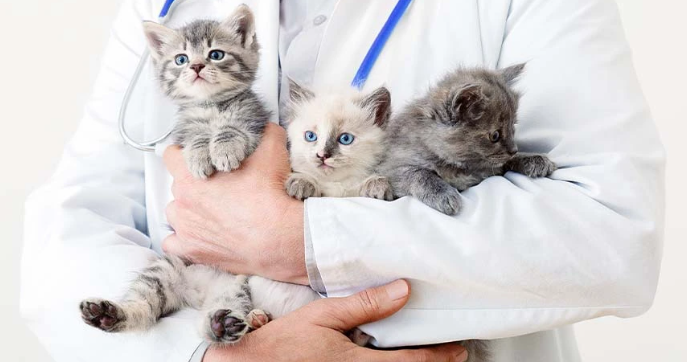Keeping your pets up-to-date with their vaccinations is crucial for their health and safety. Vaccines help protect your cats and dogs from potentially fatal diseases and ensure they lead long, happy lives. Here’s a straightforward guide to understanding the importance of pet vaccinations.
1. What Are Pet Vaccines?
Pet vaccines contain tiny amounts of virus or bacteria components. These stimulate your pet’s immune system, helping it to fight off diseases in the future. Common vaccines include:
For Cats: Feline Leukemia (FeLV), Feline Rhinotracheitis, Calicivirus, Panleukopenia (FVRCP), and Rabies.
For Dogs: Parvovirus, Distemper, Rabies, and optionally Bordetella, Leptospirosis, and Canine Influenza depending on their lifestyle.
2. Why Are Vaccines Necessary?
Vaccines are essential for:
Cats: Protecting against fatal diseases like feline leukemia. Although there isn’t a vaccine for Feline AIDS, there are other vaccines that shield against other common and dangerous infections.
Dogs: Preventing severe illnesses such as Parvovirus, Distemper, and Rabies. Early vaccines are especially vital for puppies, who are more susceptible to infections.
3. Vaccination Schedules
Kittens: Start around 8 weeks old, typically including FVRCP, FeLV, and Rabies.
Puppies: Begin vaccinations at 7 to 8 weeks, with booster shots every 3 weeks until 16 weeks old, covering Parvovirus, Distemper, and Rabies.
Adult Pets: Require booster shots to maintain immunity. Regular vet checkups are necessary.
4. Common Concerns and Misconceptions
Side Effects: Vaccines are generally safe. Minor issues like sleepiness or soreness at the injection site may occur but are rare and far outweighed by the benefits.
Indoor Pets: Even indoor pets need vaccinations. They can still be exposed to diseases through people and other animals.
 ?
?
Photo Credit: Cat Cafe SD
Missed Vaccinations: If you miss a shot, reschedule as soon as possible to avoid exposing your pet to illness.
5. Lifestyle and Additional Vaccines
Cats: Indoor cats still might need certain vaccines, especially if they interact with other cats.
Dogs: Active dogs, particularly those frequenting parks or boarding facilities, might need additional vaccines like Bordetella or Influenza.
6. Understanding Vaccine Safety
Advances in vaccination technology have improved safety. Adverse effects are rare.
Cats: Only 0.52% experience issues like lethargy or fever within 30 days.
Dogs: Adverse reactions occur in about 18.4 per 10,000 vaccines, ranging from minor symptoms to rare allergic reactions.
7. Vaccines for Indoor Pets
All pets, regardless of whether they are indoor or outdoor, need vaccinations. Rabies vaccines are legally required in many areas, and indoor pets are not immune to potential indirect exposures.

Photo Credit: AKC
8. Vaccines for Senior Pets
Older pets with a history of vaccinations may have weaker immune systems, making continued vaccinations important to protect them from new diseases.
9. Veterinary Recommendations
Veterinarians customize vaccination schedules based on the latest research and your pet’s specific needs and risks. Their expertise ensures your pet receives the best care.
10. Cost-Effectiveness of Vaccines
Vaccines are a cost-effective way to prevent expensive illnesses. For instance:
Treating Parvovirus can cost thousands of dollars, while the vaccine itself costs less than one hundred dollars.
A booster for Feline Viral Rhinotracheitis is less than one hundred dollars, compared to the thousands needed to treat the disease.
 ?
?
Photo Credit: MetLife Pet Insurance
Conclusion
At The Drake Center, we understand that concerns about vaccines can stem from misinformation or negative perceptions, which is why we strive to provide clarity and reassurance. Our "Drake Difference" highlights our commitment to using only thoroughly studied, safe, and sterile vaccines, ensuring the highest standard of care for your pets. Our dedicated, compassionate team employs fear-free methods, such as distractions and treats, to make the vaccination experience as calm and positive as possible. As an AAHA-accredited facility, we adhere to rigorous standards of care, reflecting our unique dedication to your pet's health and well-being. With us, your furry friends receive not just exceptional medical care, but also a compassionate approach that prioritizes their comfort and happiness.
Vaccinations are a crucial part of your pet’s health care. For any questions or to schedule a vaccination, you can call us directly at (760) 452-3190, or you can email us at [email protected]. Don't forget to follow us on social media Facebook, Instagram.
The Drake Center for Veterinary Care is an AAHA-accredited animal hospital located in Encinitas, CA. The Drake Center loves being a source of information for all pet owners across the country however if you have any questions regarding pet care and do not live in Encinitas, CA or surrounding cities, we encourage you to contact your local veterinarian.

